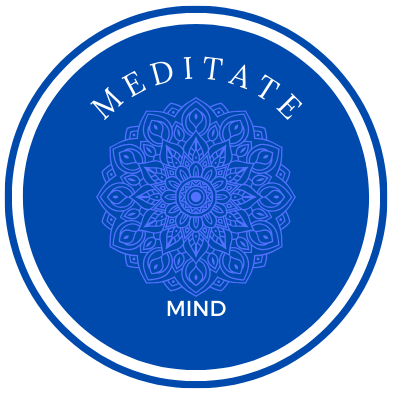
Let’s explore how mindfulness meditation intersects with mental health. To start, let’s understand what mindfulness meditation is all about. It’s a practice focused on being fully aware of your present sensations and emotions without any judgment or interpretation. Through techniques like breathing exercises and guided imagery, mindfulness meditation helps relax the body and mind, ultimately reducing stress.
Delving into the profound link between mindfulness practice and your mental well-being reveals more than just a passing trend. Countless studies support the assertion that mindfulness can significantly improve your mental health. However, it’s not merely about mastering the technique; it’s about the doors it opens for effectively managing everyday stress, anxiety, and depression.
In my opinion, it’s important to set realistic expectations when starting out with mindfulness meditation. You’re not looking for a quick fix. Instead, it’s about building a skill that can help in cultivating a greater sense of emotional balance and peace over time. What’s truly important here is recognizing that while the practice is rooted in simplicity, its effects can be deeply profound.
Understanding that everyone’s journey with mindfulness meditation is unique is vital. It can be appealing to compare your progress with others; however, it’s crucial to honor your own pace and experiences. Choose something that resonates with you, and don’t worry too much about ‘doing it right.’ Mindfulness is a personal journey, and your practice should reflect that.
Scientific Evidence Supporting Mindfulness Meditation
I’m going to dive straight into the hard data that links mindfulness meditation to positive mental health outcomes. There’s been a flurry of clinical studies that have examined everything from stress levels to cognitive function in individuals who practice mindfulness meditation regularly.
Now, what’s truly fascinating is the neurological benefits. Research has discovered that consistent meditation can actually cause physical changes in the brain. For example, areas related to attention and emotional regulation can become more developed. It’s like building mental muscles – every session of mindfulness is a workout for your brain!
For those grappling with anxiety and depression, there’s hopeful news. Several studies show that mindfulness techniques can notably decrease symptoms. While it’s not a cure-all, it’s a potent tool to have in your mental health toolkit.
While we’re talking about the long-term effects on mental health, it’s important to understand that mindfulness is more than a quick fix. It promotes lasting change in how we relate to our experiences, fostering a resilience that can alter our well-being in the long run.
To cap it off, experts in the field – psychologists, psychiatrists, and neuroscientists – are putting their weight behind mindfulness. Their endorsements aren’t based on a fad; they’re rooted in rigorous studies and clinical experience.
Practical Mindfulness Strategies for Everyday Life
If you want to harness the benefits of mindfulness for your mental health, incorporating it into your daily routine is key. I’m going to share some straightforward strategies that can fit into any lifestyle, whether you’re a busy professional, a student, or a stay-at-home parent.
You might be wondering whether to start with guided meditation or to dive into solo practices. Guided sessions can offer structure and direction, which are especially helpful for beginners. On the other hand, solo practices give you the freedom to explore mindfulness at your own pace and make it a deeply personal experience.
The core of mindfulness is not confined to meditation alone. Simple acts like focusing on your breath during a hectic moment, or fully engaging with the sensations of eating a meal, are also forms of mindfulness that can help manage stress and emotional overwhelm.
Don’t worry too much about not having enough time. Mindfulness can be adapted to any schedule. For example, a five-minute breathing exercise might be all you need to reset and refocus during a busy day.
Keep in mind, mindfulness isn’t a one-size-fits-all solution. Find what resonates with you, whether it’s meditative walks, journaling, or mindful cooking. Consistency and intention are key.
The stories of people from all walks of life finding solace and strength in mindfulness are numerous. From executives to artists, many have shared testimonials about how these practices have improved their focus, creativity, and overall life satisfaction.
As we look ahead to the challenges and misconceptions you might face with mindfulness, remember that each person’s experience with meditation is as unique as their fingerprint. What works for one may not work for another, and that’s perfectly okay.
Overcoming Challenges and Misconceptions
I’m going to level with you – starting a mindfulness practice isn’t without its hiccups. You might wrestle with distractions, time constraints, or even skepticism about whether it’s worth it. Tackling these challenges head-on can make all the difference in sustaining your practice.
Now what is a big deal? Misconceptions about meditation for sure. Some think you have to be a Zen master or that meditation takes hours a day. Guess what? They are mistaken. Meditation is for everyone, and even short sessions can yield benefits.
I’m here to help you discover an approach that aligns with your interests. Personalizing your practice is crucial. If seated meditation isn’t your preference, perhaps explore walking meditations or integrate mindfulness into activities like cooking or gardening—choose what resonates with you and brings you joy. As someone who enjoys meditation in bed before sleeping, I understand the importance of finding what works best for you.
Don’t worry too much if you’re struggling – sometimes you need a little extra help, and that’s okay. Whether that means reaching out to a mindfulness coach, joining a local meditation group, or simply using an app, getting support can bolster your confidence and keep you on track.
Lastly, remember that you’re part of a community. Whether online or in-person, connecting with others on this path can provide motivation, inspiration, and valuable insights. Sharing your experiences might just be the encouragement someone else needs to start their own mindfulness journey.
